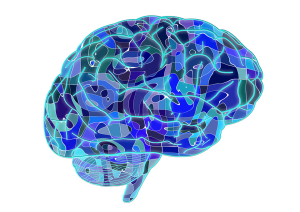Here is our page for all articles related to Cognition Strategies and Technology on the website. Cognition Strategies and Technology Summary.
Psychologists view learning in terms of thought processes, or cognitions, that underlie it – an approach known as a cognitive learning theory.
Furthermore, not denying the importance of classical and operant conditioning, they have focussed on the unseen mental processes that occur during learning, rather than concentrating solely on external stimuli, responses, and reinforcements.
Latent – a new behavior is acquired but is not demonstrated until some incentive is provided for displaying it (Tolman & Honzik, 1930).
Moreover, people can develop cognitive maps of their surroundings, an example permits the knowledge of a fast food outlet even though you may have never entered it.
Observational – is learning by watching the behavior of another person or model – a social phenomenon – often referred to as a social-cognitive approach to learning (Bandaura, 1999, 2004).
A key point of this approach is that the behavior of models who are rewarded for a given behavior is more likely to be imitated than behavior in which the model is punished for the behavior.
Not only negative behaviors are acquired the operant conditioning technique of shaping is inappropriate.
For example, consider piloting an aircraft and performing surgery… no room for trial and error methods without risk to all in the learning process.
Genetics in observational learning may have a basis.
Not all behavior that we witness is learned or carried out.
Rewarded behavior for example if we observe a friend being rewarded for putting more time into studies by receiving higher grades, we are more likely to imitate the behavior as opposed to being stressed and tired.
These rewarded models are more apt to be mimicked than an alternate punishment.
On the other hand, observing punishment does not necessarily stop observers from learning the behavior. It can be seen but they are less apt to perform it (Bandura, 1977, 1986, 1994).

| Cognitive Theory of Multimedia Learning video
The influences on education and training will continue to change over time. Instructional technology has the potential to change along with those influences. |
| Instructional Technology Advantages and Disadvantages
This article focuses on the advantages and disadvantages of Instructional Technology for commercial entities, adult and or in the workplace. |
| History of Instructional Technology: Wireless Tech
The implications of wireless technology for marketers, teachers and corporate trainers provide end-to-end connectivity between, customers and business, teachers and students, corporate trainers and employees. |
| Is the brain like a computer, descriptive and scientific?
To answer this question with supportive material definitions needs to be explained. An analogous definition is “a thing that is comparable to something else in significant respects.” |
| Instruction: Learning and Behavioral Objectives
Here’s a drop copy post discussion to this question. Do you think there is a basis for making a distinction between a behavioral objective and a learning objective? |
| The Potential of Instructional Technology A review |